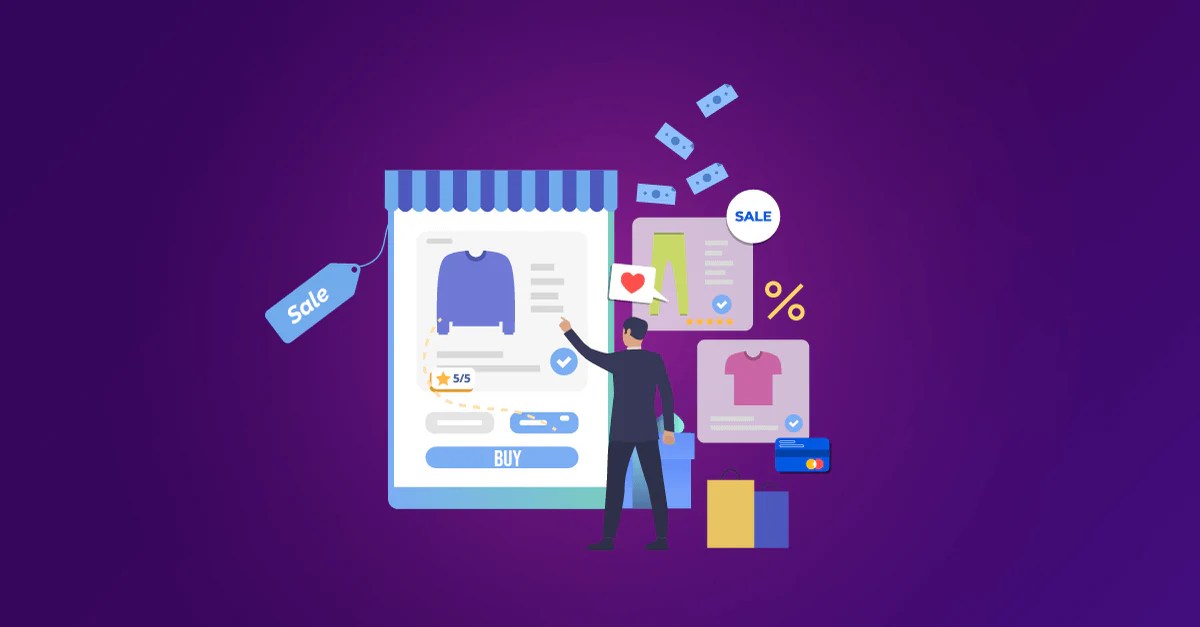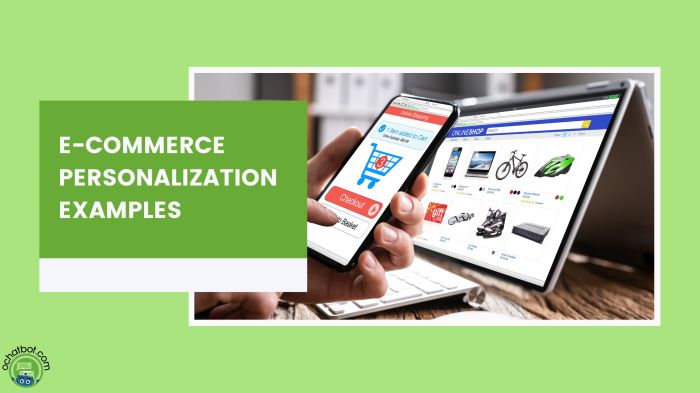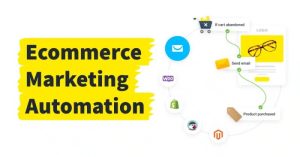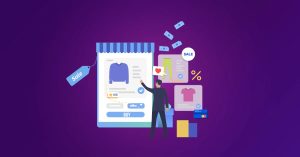
Step into the world of E-commerce personalization techniques where brands create magic with tailored experiences for every customer, revolutionizing the online shopping landscape. Get ready to uncover the secrets behind successful strategies and the power of personalized marketing!
E-commerce Personalization Techniques
E-commerce personalization involves tailoring the online shopping experience to individual customers based on their behavior, preferences, and demographics. This customization aims to enhance customer satisfaction, increase engagement, and ultimately drive sales.
Examples of Successful E-commerce Personalization Techniques
- Amazon: Utilizes recommendation algorithms to suggest products based on browsing and purchase history, as well as personalized emails with targeted product recommendations.
- Netflix: Curates personalized movie and TV show recommendations based on viewing history, ratings, and preferences, enhancing the user experience and engagement.
- Sephora: Offers personalized product recommendations and beauty tips through its online Beauty Insider program, creating a personalized shopping experience for customers.
Importance of Personalization in E-commerce
Personalization in e-commerce plays a crucial role in enhancing the customer experience by providing tailored recommendations, improving user engagement, and increasing customer loyalty. By understanding individual preferences and behavior, e-commerce platforms can create a more personalized and relevant shopping experience, leading to higher conversion rates and customer satisfaction.
Benefits of E-commerce Personalization
Personalization in e-commerce offers a myriad of benefits for both businesses and customers. By tailoring the shopping experience to individual preferences, e-commerce platforms can significantly enhance customer satisfaction and drive sales.
Personalized Product Recommendations
- Personalized product recommendations based on a customer’s browsing history, purchase behavior, and preferences can lead to higher conversion rates.
- By showcasing relevant products to customers, e-commerce platforms can increase the likelihood of impulse purchases and cross-selling opportunities.
- Customers are more likely to return to a website that provides personalized recommendations, fostering brand loyalty and repeat purchases.
Personalizing Marketing Messages
- Customizing marketing messages based on customer data and behavior can result in higher engagement rates and click-through rates.
- By delivering targeted promotions and offers to individual customers, e-commerce platforms can create a sense of exclusivity and urgency, driving sales.
- Personalized marketing messages can also enhance brand perception and customer trust, leading to long-term relationships and brand advocacy.
Personalized Shopping Experiences
- Offering personalized shopping experiences, such as customized product recommendations, tailored promotions, and individualized discounts, can increase customer satisfaction and loyalty.
- By creating a seamless and personalized shopping journey, e-commerce platforms can differentiate themselves from competitors and stand out in a crowded market.
- Building customer loyalty through personalized experiences can result in higher customer lifetime value and increased profitability for e-commerce businesses.
Strategies for Implementing Personalization

Implementing personalization in e-commerce involves various strategies that help businesses tailor their offerings to individual customers. By collecting customer data, utilizing AI and machine learning, and leveraging relevant tools and technologies, companies can create personalized experiences that drive engagement and conversions.
Different Methods for Collecting Customer Data for Personalization
- Website Analytics: Tracking user behavior on the website to understand preferences and interests.
- Customer Surveys: Gathering direct feedback from customers to personalize their experiences.
- CRM Systems: Utilizing customer relationship management platforms to store and analyze customer data.
- Social Media Listening: Monitoring social media channels to gain insights into customer sentiments and preferences.
Explain How AI and Machine Learning Can Be Utilized for Effective E-commerce Personalization
- Product Recommendations: Using algorithms to suggest products based on customer browsing and purchase history.
- Dynamic Pricing: Adjusting prices in real-time based on customer behavior and market conditions.
- Personalized Emails: Sending targeted emails using machine learning to improve open and click-through rates.
- Chatbots: Implementing AI-powered chatbots to provide personalized customer support and recommendations.
Share Examples of Tools and Technologies that Aid in Implementing Personalized Experiences
- Customer Data Platforms (CDPs): Platforms that centralize customer data for better personalization.
- Personalization Engines: Tools that analyze data to deliver personalized content and product recommendations.
- A/B Testing Tools: Testing different personalized experiences to optimize conversion rates.
- Segmentation Tools: Dividing customers into segments based on behavior and preferences for targeted marketing.
Marketing E-commerce
In the world of e-commerce, marketing plays a crucial role in attracting customers, driving sales, and building brand loyalty. Effective marketing strategies can help businesses stand out in a crowded online marketplace and connect with their target audience in a meaningful way.
Different Marketing Techniques in E-commerce
When it comes to marketing in e-commerce, there are several techniques that businesses can leverage to reach their audience and drive sales:
- Social Media Marketing: Utilizing platforms like Facebook, Instagram, and Twitter to engage with customers, showcase products, and run targeted advertising campaigns.
- Email Marketing: Sending personalized emails to customers based on their preferences, purchase history, and behaviors to promote products, offer discounts, and encourage repeat purchases.
- Search Engine Optimization (): Optimizing website content and product pages to rank higher in search engine results and drive organic traffic to the site.
- Pay-Per-Click (PPC) Advertising: Running targeted ads on search engines and social media platforms to reach potential customers and drive traffic to the site.
Integration of Personalization in E-commerce Marketing
Personalization can significantly enhance e-commerce marketing strategies by creating more relevant and engaging experiences for customers. Here are ways personalization can be integrated into marketing efforts:
- Personalized Recommendations: Using customer data to recommend products that align with their interests, preferences, and past purchases.
- Dynamic Content: Tailoring website content, email campaigns, and ads based on customer behavior, location, and demographics.
- Behavioral Targeting: Segmenting customers based on their online behavior and targeting them with personalized offers and promotions.
- Personalized Email Campaigns: Sending targeted emails with personalized subject lines, product recommendations, and special offers to increase engagement and conversions.
Closing Notes

As we wrap up our journey through E-commerce personalization techniques, remember that the key to unlocking customer loyalty and driving sales lies in the art of customization. Embrace these techniques to elevate your brand and leave a lasting impact on your audience.
Question & Answer Hub
How can e-commerce personalization benefit my business?
By offering personalized product recommendations, you can increase sales and enhance customer satisfaction.
What role does AI play in e-commerce personalization?
AI and machine learning are instrumental in analyzing customer data to deliver personalized experiences efficiently.
Are there any specific tools for implementing e-commerce personalization?
Yes, there are various tools and technologies available that aid in creating customized shopping experiences for customers.






